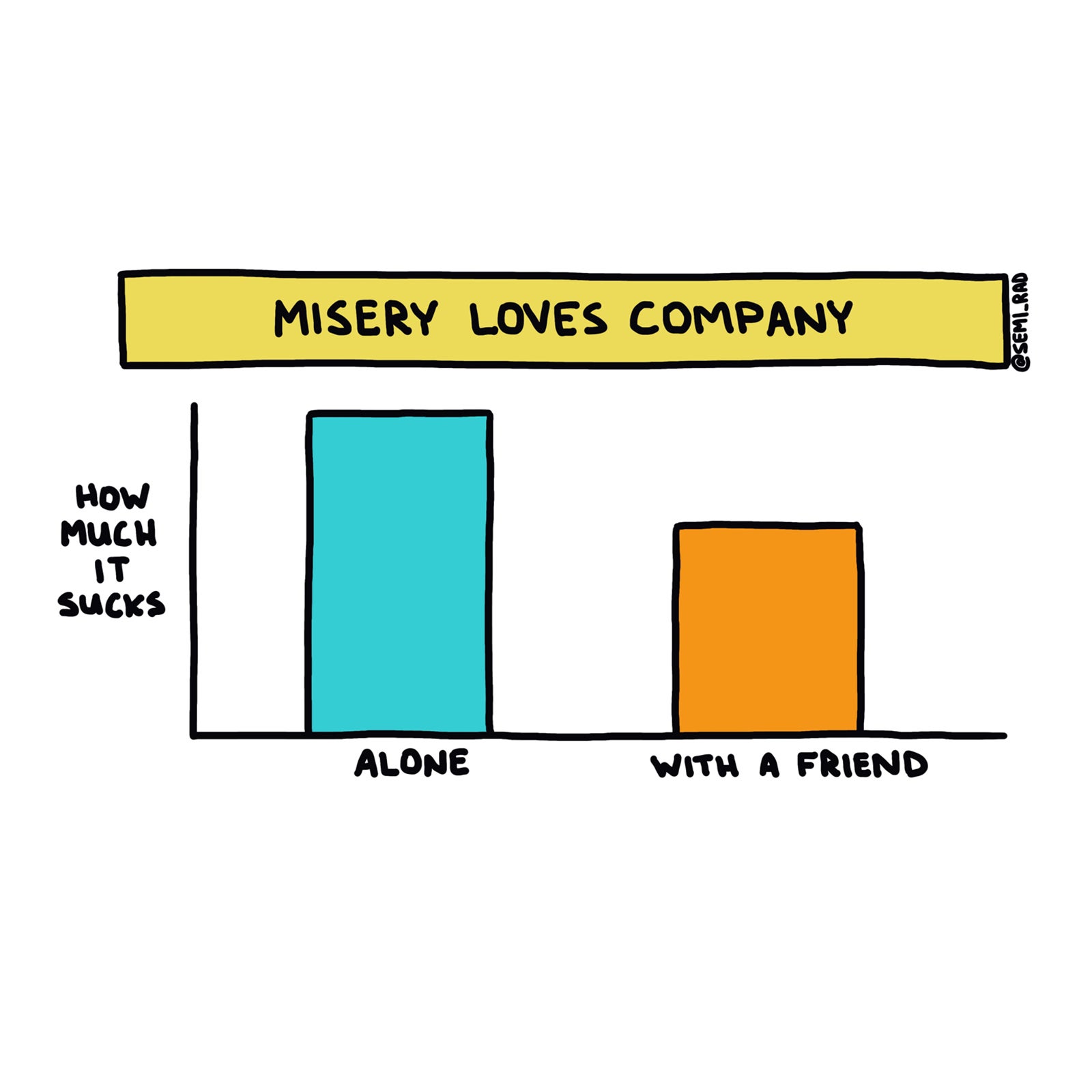I trudge forward, the muddy road tugging at my running shoes, splattering my ankles and shins, as I finish the uphill part of my fifth or sixth lap. I’ve been doing this for more than four hours, only continuing because the thing I’m training for will be way worse if I don’t train. My feet have been soaked inside my shoes for most of that time, my knee hurts, and I’m tired. Then, I hear a voice:
“Do you want to hear some more animal facts?”
Yes, I say to . Yes, I do. Five minutes later, I have heard how hippos are not native to Colombia, but were smuggled into the country by none other than Pablo Escobar in the 1980s, and that some escaped his estate and have been reproducing since, and also that sterilizing hippos is very expensive and really difficult. I know this because Jayson has been reading by Lucy Cooke and, well, why would you not talk about sterilizing hippos when you’re slogging uphill in the mud?
If you like to do hard things/dumb shit in the outdoors and you have friends to do those things/that shit with, you have probably been in a similar situation before: cringing as a gust of wind blasts your face with spindrift that feels like sand, or grinding out uphill steps under the weight of a heavy backpack watching sweat drip off the end of your nose, or just trying to get through the last 30 minutes of a workout without passing out, puking, or quitting. If you have a friend with you, maybe you exchange knowing glances, crack a joke, or just laugh at how ridiculous the whole thing is. And you assume it helps, in the moment.
We’ve been saying “misery loves company” for centuries, long before we thought it would be fun to go tromp up a cold, dangerous mountain because it was there or grit our teeth for hours to a finish line—.
Well, it turns out misery actually does love company, because company helps, as proven by science. For one, —think holding someone’s hand while giving birth, or pedaling next to someone for the last 10 percent of a really tough ride. Friendships also increase resilience. A found that “best friendships are a protective mechanism supporting the development of psychological resilience in adults,” and of adolescents by the same researcher found “a positive association between greater perceived friendship quality and increased resilience,” and that “at least one close friendship helps adolescents craft meaning and strength amid substantial adversity.”
Perhaps most relevant to adventure sports: In a , University of Virginia students were asked to estimate the steepness of a hill. Some participants were tested alone, and other participants were tested along with someone they identified as a friend. When study participants had a friend with them, they saw the hill as being less steep. Which might explain the increase in optimism you might feel when approaching a mountain climb with a partner or friend, as opposed to by yourself. In addition, the study found that “the longer a friend was known, the less steep the hill appeared.” Doing things with a longtime partner or close friend can additionally increase that optimistic feeling.
So if you can find a friend or two who likes to do the same adventurous, sometimes miserable things you do, or seems to have the same screw loose, hang on to them. It’s not just the centuries-old-proverb that says misery loves company—science shows that friends actually make difficult things more tolerable. Especially when your friends are the type of company who also, strangely, kind of love misery.


